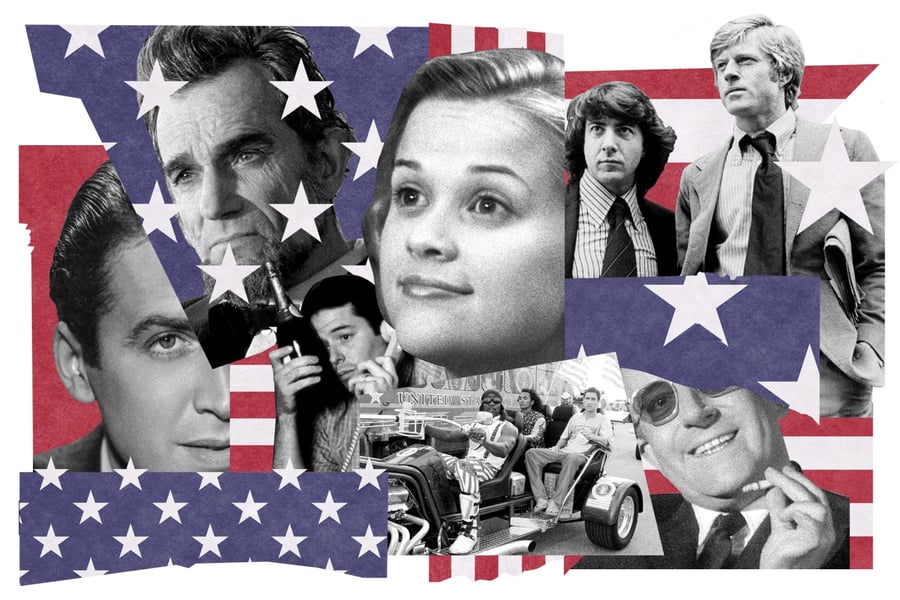The 20 Best Political Movies
A ranked list of the 20 greatest movies about the U.S. political process, from comedies like ‘Idiocracy’ to dramas like ‘Lincoln’ and more

Left to right: 'Mr. Smith Goes to Washington,' 'Lincoln,' 'Election,' 'Idiocracy,' 'Dr. Strangelove,' 'All the President's Men' PHOTO ILLUSTRATION BY MATTHEW COOLEY. IMAGES IN ILLUSTRATION: EVERETT COLLECTION, 4. JOHN KISCH ARCHIVE/GETTY IMAGES.
Perhaps you’ve heard there’s a presidential election coming up? One that may, in fact, be the single most important referendum on our way of government in our lifetime? It is a reality that may have you looking for inspiration in the final weeks leading up to Nov. 5 — or escape. How better to thread this particular needle than with movies about American politics? Filmmakers have long been dealing with the topic of our nation’s origin story, and how our particular manner of governance — “by the people, for the people,” or at least that’s how it reads on the page — has contributed to the idealistic image of America that its citizens hold near and dear to our hearts. But well before Watergate became more than just a hotel, the movies have also cast a keen kino-eye on how American democracy is a notion that’s ideal in conception and too often flawed in execution. Here are our picks for the 20 best films exploring the good, the bad, and the extremely ugly aspects of American politics.
CONTRIBUTORS: Jon Dolan, David Fear, Andy Greene, Tim Grierson, Jason Newman, Andrew Perez, Tessa Stuart, Esther Zuckerman
From Rolling Stone US






















































